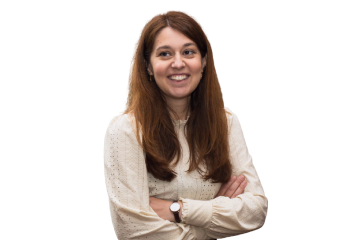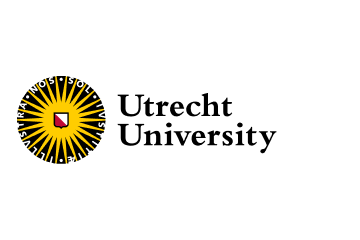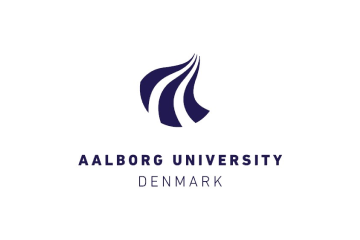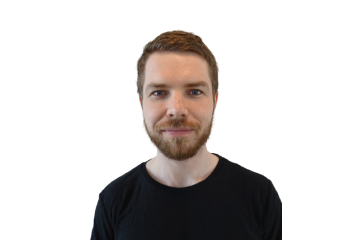
Vast Energy Efficiency and Renewable Energy Potentials within
Industry in all EU countries
Date: 17. 03. 2022
Time: 9:00 – 10:00 am
Organized by: sEEnergies, utrecht university and Aalborg University
As a response to the European Commission’s 2050 decarbonization goals, sEEnergies uniquely considers all aspects of the Energy Efficiency (EE) First Principle. By applying it in sectors and markets, country-by-country and grid-by-grid, and by combining temporal and spatial analyses, sEEnergies will develop an innovative, holistic and research-based EE-modelling approach.
The aim of sEEnergies is to quantify and operationalize the potential for energy efficiency in buildings, transport, and industry. The project goes beyond state-of-the-art science-based knowledge and methods, as it combines sectorial bottom-up knowledge with hour-by-hour modeling of the energy systems and spatial analysis in the EU. Web: www.seenergies.eu Twitter: @sEEnergiesEU
At this webinar, Katerina Kermeli from Utrecht University and Rasmus Magni Johannsen from AAU will present a comprehensive bottom-up analysis of the energy efficiency and renewable energy potentials in all industry sub-sectors in all EU27 countries and the UK. Scenarios for 2030 and 2050 will be presented together with an in-depth analysis of each industry sector in each member state made by use of the IndustryPLAN model. The presentation will give a broad understanding of the economic and social impacts of implementing the Energy Efficiency First Principle in the industry sector in the transition to 100% renewable energy.
In his presentation, Wolfgang Eichhammer will focus on the most recent energy efficiency indicators (ODYSSEE database) and policies (MURE database), as developed under the Odyssee-MURE project (www.odyssee-mure.eu). Energy efficiency progress in the industry has slowed down in recent years in a number of European countries. Based on the European Energy Efficiency Scoreboard which was developed in the ODYSSEE-MURE project, we will show, which countries have made the most progress in industry and which policies have most contributed to the progress observed. The presentation will also briefly discuss the increasing divergence between energy efficiency progress and decarbonisation in industry.
Presented by
Agenda
09:00 – 09:05
Welcome
Brian Vad Mathiesen (Aalborg University)
09:05 – 09:15
Energy Efficiency in EU Industries – Sectorial and country-based break down on costs and savings
Katerina Kemeli (Utrecht University)
09:15 – 09:30
100% Renewable Energy in EU Industries – Introduction to IndustryPLAN and Renewable Energy Scenarios
Rasmus Magni Johanssen (Aalborg University)
09:30 – 09:45
Energy Efficiency Progress and Energy Efficiency Policies for Industry in Europe (Analysis based on the ODYSSEE-MURE Project for Energy Efficiency Indicators and Energy Policies)
Wolfgang Eichhammer (ODYSSEE-MURE project)
09:45 – 10:00
Discussion and feedback from stakeholders
Katerina Kermeli is a researcher in the Energy & Resources Group of the Copernicus Institute of Sustainable Development at Utrecht University working since 2010 on a variety of projects related to industrial energy efficiency and decarbonization. In the sEEnergies project, she was involved in guiding the modelling team develop the IndustryPLAN model.
Rasmus Magni Johannsen is a PhD fellow in the Sustainable Energy Planning Research group at Aalborg University, working with industry energy scenarios and the development of the IndustryPLAN model as part of the sEEnergies project. Rasmus furthermore works with integrated energy system modelling on both a national and regional level and the development of holistic energy system scenarios.
Wolfgang is Head of the Competence Center Energy Policy and Energy Markets at the Fraunhofer Institute for Systems and Innovation Research ISI in Karlsruhe (Germany).
He is Professor at Utrecht University at the Copernicus Institute for Sustainable Development and holds a Chair on Energy Efficiency and Energy System Modelling. Within the Horizon 2020 ODYSSEE-MURE Project on Energy Efficiency Indicators and Energy Policies, he is Technical Coordinator.
Brian Vad Mathiesen, Professor in Energy Planning and Renewable Energy Systems at Aalborg University, holds a PhD in fuel cells and electrolysers in future energy systems (2008). His research focuses on technological and socio-economic transitions to renewables, energy storage, large-scale renewable energy integration and the design of 100% renewable energy systems.
He is one of the leading researchers behind the concepts of Smart Energy Systems and electrofuels. He is on the Clarivate, Web of Science Highly Cited list (2015-2020), thus among the top 1% most cited researchers globally. Among other positions, he is member of the EU Commission expert group on electricity interconnection targets in the EU and The newly founded Science Advice for Policy by European Academies (SAPEA) Expert Group on A Systemic Approach For the Energy Transition In Europe. He is the Research Coordinator of the Sustainable Energy Planning Research group, Principal Investigator (PI) of the RE-INVEST and sEEnergies projects, and Programme Director for the MSc in Sustainable Cities.
He has been PI, work package leader and participant in more than 60 research projects as well as editorial board member of The Journal of Energy Storage (Elsevier) and The Journal of Sustainable Development of Energy, Water & Environment Systems; Associate Editor of Energy, Ecology and Environment (Springer) and Editor of the International Journal of Sustainable Energy Planning and Management. Recently he started the new Elsevier Journal Smart Energy. Furthermore, he is a member of The Danish Academy of Technical Sciences (ATV) and a board member at The Danish Energy Technology Development and Demonstration Program (EUDP).Furthermore, he is a member of The Danish Academy of Technical Sciences (ATV) and a board member at The Danish Energy Technology Development and Demonstration Program (EUDP).







